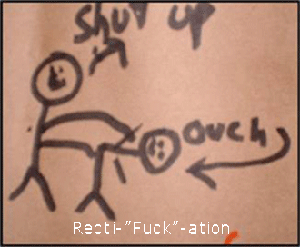
Summary
The study asked how Popular Theatre could help better understand the experiences of young offenders towards finding
appropriate approaches to meeting their needs, and explored the contingencies around enacting Popular Theatre to bring
about personal growth and social change in that context. Researchers engaged youth, over a period of six months, in
participatory drama activities drawing on their experiences and identifying issues for exploration relevant to their lives.
The Popular Theatre process asked participants to examine their world and beliefs and re-evaluate aspects of their lived
experiences. Facilitated by researchers, participants created images and scenarios from their stories and explored issues
through theatrical means allowing for an in-depth, enacted discussion of their points-of-view, helping them express, better
understand and question their experiences, and begin looking for alternative responses or options for change. Participants’
prior experiences, their experiences of incarceration, and their hopes for the future came to light.
Through a thematic analysis of their reflective journals and field-notes, researchers collaborated to devise a performance
script and disseminate findings through performance. Researchers took on various roles and acted out situations depicting
the Popular Theatre work with the youth, focusing on the researchers’ experiences of facilitating the project, the themes
and issues raised by participants, and the theatrical process that transpired. The text examined the perceptions of the
young offenders in relation to the institutional context and the perspectives of researchers, raising questions about the
Popular Theatre experience.
Conrad, D. (2006). Justice for youth versus a curriculum of conformity in schools and prisons. Journal of the Canadian
Association for Curriculum Studies, 4(2), 1-20.
Available: http://pi.library.yorku.ca/ojs/index.php/jcacs/issue/view/725/showToc